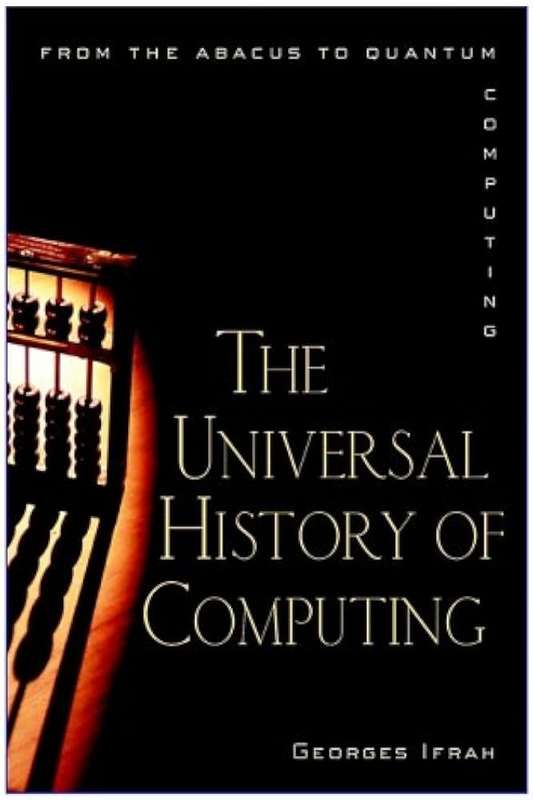
The Universal History of Computing: From the Abacus to the Quantum Computer
Check my rate
| Main centres: | 1-3 business days |
| Regional areas: | 3-4 business days |
| Remote areas: | 3-5 business days |

| Main centres: | 1-3 business days |
| Regional areas: | 3-4 business days |
| Remote areas: | 3-5 business days |
Published by Wiley, 2001, softcover, illustrated, index, 410 pages, condition: new.
n this brilliant follow-up to his landmark international bestseller, The Universal History of Numbers, Georges Ifrah traces the development of computing from the invention of the abacus to the creation of the binary system three centuries ago to the incredible conceptual, scientific, and technical achievements that made the first modern computers possible. Ifrah takes us along as he visits mathematicians, visionaries, philosophers, and scholars from every corner of the world and every period of history. We learn about the births of the pocket calculator, the adding machine, the cash register, and even automata. We find out how the origins of the computer can be found in the European Renaissance, along with how World War II influenced the development of analytical calculation. And we explore such hot topics as numerical codes and the recent discovery of new kinds of number systems, such as "surreal" numbers.
Adventurous and enthralling, The Universal History of Computing is an astonishing achievement that not only unravels the epic tale of computing, but also tells the compelling story of human intelligence-and how much further we still have to go.
This book is translated from Ifrah's original French to English by E.F. Harding. The translation is excellent, very readable, with many additional translator's notes inserted to provide useful or interesting background information.
Ifrah does an excellent job covering the hisorical record of computing, starting with an excellent overview on the history of writing and of numbers. He clearly states what is based on the history record, what is theorized from it, and what is pure speculation (at present). He covers number systems throughout the world and explains the advantages each had over others, arguing why certain ones "survived" the rest. Ifrah is a good storyteller, making the subject much more interesting and important that I expected. He covers a lot of ground in a relatively short book (410 pages for the entire span of history).
The book is at times a bit technical, which could be a turnoff to the general public. The math and the theories are not present as too difficult, brought up to show their relevance in computation and not the more "heavy" mathematics. The translator's notes made it easier to read, and the more difficult parts I did not understand were not a serious hindrance to the rest of the book.
One thing I would like to highlight: Ifrah illustrates that systems of representation and communication (such as Indo-Arabic numerals, binary code, the abacus) have been extremely important in the history of mathematics and the history of civilization. For example, the abacus made calculation of relatively large numbers possible, as did the adoption of the decimal system (we take for granted today, doing calculations in fourth grade that the best in the world could not do even 500 years ago; could you imagine counting pebbles instead of using an abacus, or writing out "345 and 2/10 and 6/100 and 8/1000" instead of "345.268" every time?). Likewise, it was only when they attempted computers with binary (its simplicity and its special properties) instead of base 8 or 10 that allowed the possibility of modern computers. If any of the above sounds interesting, then this book is definitely worth checking out.